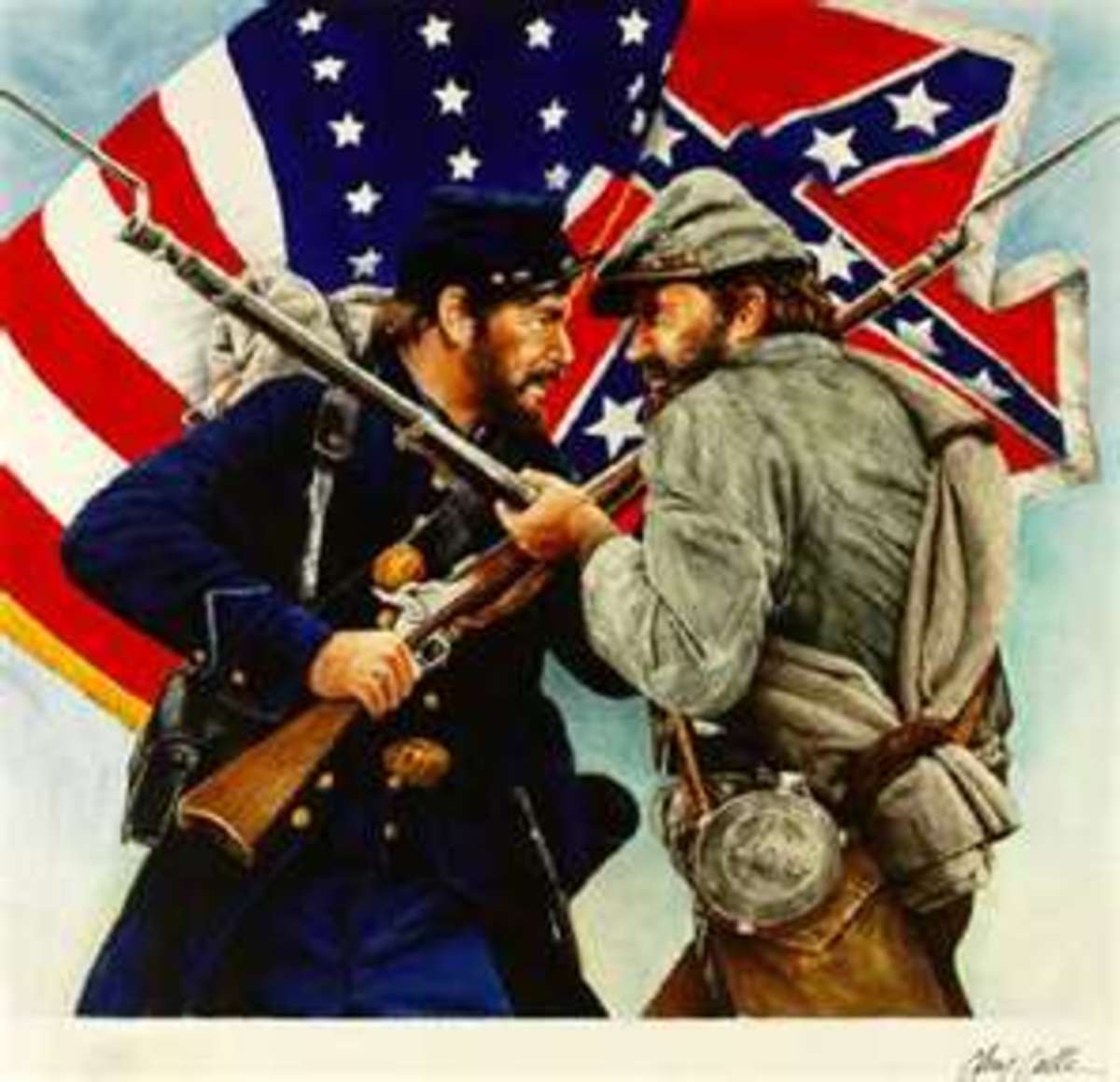The Bonfire of the Vanities: The Eye of the Beholder

Tom Wolfe's book "The Bonfire of the Vanities" has sometimes been called the quintessential novel of the 1980s. It is easy to see why - its depiction of a world which had lost any attachment to its old idealism, focused above all else on money, noisy, fast, filled with ethnic tensions, dominated by the god of finance, self-centered, shallow, cynical, and where any attempt to do good falls flat, is a painful look at the worst side of our memory of the gilded decade. It helps too that the Bonfire of the Vanities is a genuinely good read - thrilling, racy, dirty, sexy, energetic, fast, exciting, harrowing, a book that grabs hold of you and you keep on reading as it rushes past you faster and faster. It isn't a surprise that it was a tremendous best seller.
If there can be a complaint to be marshaled on my part about the author, it is the sheer frantic speed which he approaches the final pages, the final chapter of the book - so eager to have the dramatic conclusion in the trial, so eager to have this bizarre image of a judge fighting it out with protesters, so eager t o throw together the characters that he has done his best to bring to life and send forth across the pages, into his ending scene. The writing throughout this book mellows: it starts out with nearly every sentence crowned with an exclamation at the end, forcing its way into the middle of paragraphs, little energetic and bold lines resting above dots accusingly declaring that the text must! be read with vigor and speed to the reader. And then it calms and the number of exclamations dies down, as if reassuring the reader that you've made it - you've made it to New York! You've survived this barrage of exclamation marks from these energetic and fast city folk with their love of speed, energy, money, dynamism, and now you can be along for the ride - you're here for the treat as the plot begins to accelerate, as it moves faster and faster. And then this acceleration reaches this crescendo at the end and you realize that the wave which it ends with won't peak in some dramatic curl which heaves itself over the land in elegant abandon, but rather which throws itself furiously onto the sands, without regard for what came before or after. It is much like this in the final chapter, which has this frantic, unreal air about it, which turns a book which like New York itself had managed to convince you of its elegant panache and its respectable pedigree into the real New York. It rips off the mask and cheapens itself, blaring at you with a New York accent that it was like that all along - that it is what you just had to expect, this frantic fighting at the end, that it would throw it all in your face and you should appreciate it. I didn't, I find it egregiously breaking to the careful reality and gritty realism throughout, that the author too was willing to play to the peanut circus, his ultimate readers, in order to get the dramatic conclusion he desired.
But I still enjoyed the book greatly, and it is interesting because there are so many different interpretations which can be pulled from it. Of course, any book inherently is open to an infinite number of interpretations, but I think that the Bonfire of the Vanities is even more manifold in its meaning than most. Not everything is easily applicable, or at least their absence makes it difficult to talk about them in relationship to the Bonfire of the Vanities - it doesn't go explicitly for things such as, say, feminism for example. But what is intriguing about it is that it can be analyzed from various themes at once with incredible ease.
A Progressive Vision?
Perhaps what one might interpret from the Bonfire of the Vanities at first is a progressive vision of society: that ultimately some form of justice arrives and the racial divisions are healed over, that there is a moral bankruptcy of Wall Street and that what good there is that exists comes from the marginalized.
After all, Sherman McCoy is undeniably a man who commits a great evil - running over an innocent man, and then not coming clean about it. McCoy is himself, objectively, quite the morally corrupt man - engaging in an affair with a mistress, despite being married and with a daughter, tempted by greed, lacking much in morals, who attempts to cover up his crime. He does have some notion of a sense of morals - unlike his mistress Ruskin, he seems to feel genuine regret about the young black man Henry Lamb that he ran over, seems to have a conscience about spying on his mistress Rusking - but he lacks the backbone to actually do anything with it. It is a common enough trait that liberals and progressives see in our country's elites - that they have a vague sense of moral justice, but lack the will to actually do anything about it. We can sob about racial discrimination, war crimes, capitalist oppression - but never actually do anything about it. McCoy is the perfect representation of the elite who has just enough of a moral conscience to understand that what he does is wrong - but lacks the initiative to do anything about it.
Of course, there is also more to the Bonfire of the Vanities than just the perspective of McCoy. There is also the criminal justice system, which is a mockery of justice - a group of judges distanced from the people that they rule over, used cynically for profit seeking lawsuits, never designed to bring actual justice, just to keep the masses down and the rich on top. There are flaws for sure in the communities that this "justice" system keeps watch over, but these don't excuse its own failings.
But the progressive ideal of idealistic people striking back at the system which holds them down doesn't hold water - they too are manipulated by the thoroughly dubious figure of Reverend Bacon, and most of those who pursue McCoy do so for cynical reasons, with no real interest in justice. In fact, McCoy's trial is perceived by many of the police who participate in it as essentially blowing off steam - as a way to feel that justice is being applied equally, when it isn't. Instead of McCoy's trial leading to any real reform of justice, it just perpetuates the system, enables it to give itself a veneer of legitimacy without changing anything.
This is why the title of the Bonfire of the Vanities is so brilliantly conceived for the work - because in the end, all of us are laid low, all of us have our hubris and our own self-satisfied feelings of pride thrown onto the flames and burned, but these are all just vanities, and nothing fundamentally changes. Everyone is humbled. This appears progressive because so much of the progressive ideal in contemporary America is about tearing things down - tearing down the establishment, the wealthy, racism, greed. There is less about what is to be built afterward, and so a book like Wolfe's emerges almost as being able to be believed as progressive - because in the end, the mighty are laid low. But it does not mean that the deserving are raised high, nor does it mean we are any closer to solving our problems. Henry Lamb expires in his hospital bed. McCoy's mistress Ruskin finds another husband to leach off of. The scheming and no-good journalist Fallow is rewarded with a Pulitzer Prize and marriage to the wealthy daughter of the owner of the newspaper he works for. Yes, McCoy is laid low, yes, the corruption and moral bankruptcy of New York's elite is exposed - but in the end, nothing really changes. A few individuals are cycled out of their privileged life, a few more morally corrupt individuals take their place, and life goes on.
A Realist Vision?
The Bonfire of the Vanities is gritty. I think there is no other word which explains it quite as well, which so thoroughly encapsulates it. This is what lies at the heart of the book - that it rejects idealism, rejects envisioning the world in terms of possibilities built upon idealistic hope. The characters are overwhelmingly driven by cynical opportunities, be it money, fame, grandeur, sex, reelection, power, even just a good story. One would look for a very long time for people who are genuinely motivated by idealism, and when these people emerge they come from the lower classes, and are manipulated by their elites - such as protesters working for justice for Henry Lamb, killed by Mccoy, who are exploited by Reverend Bacon as a cause celebre to maintain his own corruption and "moral leadership" over the black community in New York. Reverend Bacon looks alarmingly like Al Sharpton today, and indeed, there is speculation about whether Reverend Bacon is inspired by him.
Henry Lamb is perhaps the only really sympathetic character in the whole affair, a seemingly decent young men, struck down by arbitrary fate, and who seems to have only wanted to try to offer help to a lost man. And yet it is this very attempt to offer succor to his fellow man that leads to his death. Idealism leads to nothing but woe.
This is vital to what makes Bonfire of the Vanities such a believable, realistic story - that it relies purely on human greed, avarice, and eschews anything other than gritty reality. The question which one can ask is whether this vision itself is skewed - after all, humans always have some idealism, there is always some greater ideal which animates at least some of us, and yet it is entirely missing in Bonfire of the Vanities. The Bonfire of the Vanities isn't realist - it is cynical. And this cynicism to us is what makes it appear so realistic.
A White Perspective?
Much of the writing that has been done about the Bonfire of the Vanities focuses on the intersection of race and class. This is true, as the book does have a great deal of this, but at the same time the specific race has more complexity than this - the book is not just the story of white and black as racial relations in America tend to boil down to, but rather the complex interplay of different ethnic groups - White Anglo-Saxon Protestants, Irish, Italians, Blacks, Jews, etc. And one feature which is cruelly present in regards to the White Anglo-Saxon Protestants is that despite their immense power and influence, they are alone among all of the groups in that they have no real sense of solidarity, no connection, no broader group of community that looks out for each other. It makes for fascinating reading in the current age where there is increasing political controversy over white Americans and their sense of ethnic solidarity. Does the book advocate that the WASPs rediscover some sort of lost solidarity? Personally I'd doubt it - its focus concerning their betrayals is more slanted against their class corruption and social bankruptcy, but it is a feature which can be all too easily ignored.
What I do think is that it aims to take aim at the idea of a dominant white upperclass, lording it over the poor below them. This is quite literally the structure present at some parts in the novel, such as in the criminal courts of the Bronx, looking down from the airy fortress on the crowds below, as detective Kramer thinks about their seclusion from the vast masses of colored Puerto Ricans below, secure in their refuge, among a crowd of overwhelmingly white people exercising their justice over the poor masses below. But the book has no such thing as racial solidarity - there is at most, ethnic solidarity, between the Irish, between Jews, between Blacks - there is no such thing as a broader solidarity between the whites, and among the White Anglo-Saxon Protestants, there is not even this. Wolfe's book takes a devastating aim at the idea of a unified white race, and reveals a motley collection of people who have been thrown together by fate and fortune and who share nothing but the teint of their skin.
Moral Bankruptcy of the Elites?
Sherman McCoy probably isn't an idiot. Neither is he an evil person. But it is impossible to avoid the conclusion that in the Bonfire of the Vanities, he is both immoral and stupid, and that he, who believes himself to be the master of the universe, is fundamentally dangerously lacking in his own confidence and assurance. When interviewed by detectives he cracks under the pressure, in response to even the slightest weight against him: if he had only maintained the slightest sense of composure, then he would never have faced legal investigation. He betrays his girlfriend, despite moral qualms, being overwhelmed by his lawyers' council. He cheats on his wife. He is delighted when he receives any attention from the crowd of social X-Rays at his wife's party. In short, McCoy, who believes himself to be the master of the universe, shows himself painfully ill-equipped for power and its responsibilities.
Indeed, this can be said for all of the elites arrayed in the book - financiers, journalists, lawyers, notables. There are precious few who stand out from the muck, precious few who don't betray and backstab each other. In their parties, they lack dangerously in any sense of solidity, so that they flit around as the "social X-Rays", and they willingly abandon each other when the slightest inconvenience arrives, such as McCoy's neighbors wish to have him expelled from his apartment due to the noise of the mob from below. And yet there are some who stand out above the rest, such as McCoy's father, hardworking, courageous, selfless, a honest and solid man who deserved what he had, unlike his son. The focus of the book is that the generation of elites leading society in the 1980s are the ones who are irredeemably flawed, with everything having come too easily to them, by chance, in a financial world where they got to the top by chance, and that they lack moral backbone and discipline. McCoy's fighting spirit only comes out when he faces the jaws of defeat, hounded by the mob - and even then, in what might have been a way to resurrect this character, he fails morally, when he uses his listening bug device to record the conversation he has with his former mistress Ruskin. In the end, saving his skin is more important than his code of honor - even if he does know that what he is doing is wrong, and struggles against it at first.
There are a lot of facets to The Bonfire of the Vanities. It is a book that I enjoyed a lot in reading it, and I'm sure that one could in the end reduce it down to just one of these - Tom Wolfe as a Republican after all, so perhaps the reality is that only the conservative vision which he projected was what he really meant. But books are fascinating beyond this because there are so many different visions which can be projected by them. In the end, it fits the 1980s well because at heart, it is a book which doesn't seem to aspire to anything more than itself - it is fast, energetic, exciting, thrilling, but it doesn't give birth to a better world, and it has no optimism for the future, just acceptance. The bonfire of the vanities leads to nothing enduring for the future, only ashes.
© 2020 Ryan C Thomas








